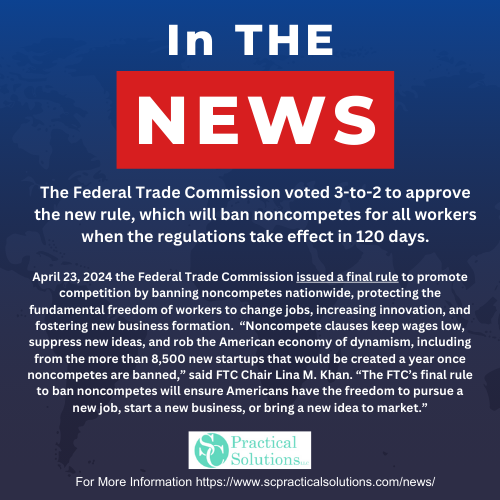
The recent decision by the Federal Trade Commission (FTC) to ban noncompete agreements across various industries, including healthcare, heralds significant implications for physicians. This article delves into how this ban might reshape the landscape for doctors:
Ban on Noncompete Agreements: The FTC has greenlit a ban on noncompete agreements, slated to take effect in four months, contingent upon any legal hurdles. These agreements traditionally curtail employees from transitioning to rival positions within the same industry, within specific geographical confines, or over a designated timeframe.
Impact on Physicians: A substantial portion of physicians (37% to 45% in the U.S.) currently labor under noncompete clauses stand to benefit. The ban empowers them to shift jobs and join rival companies without being tethered by such constraints. Forecasts suggest an array of positive outcomes, including a surge in patents, new startups, pay raises, and potential healthcare cost reductions.
Coverage and Exceptions: The ban primarily targets for-profit entities, as the FTC’s jurisdiction over nonprofit organizations is limited. However, nonprofit hospital physicians and nurses might fall outside this ban’s purview unless their operations exhibit profit-driven characteristics. Ambiguity shrouds the exemption criteria, particularly regarding nonprofit hospitals or health systems.
Divided Opinions: While the American Medical Association (AMA) endorsed the ban on many physician noncompete provisions, dissenting voices within the healthcare sector underscore the importance of fair competition and patient access. Opinions remain polarized, with some advocating for enhanced physician mobility and others advocating for competitive equilibrium.
In summary, the FTC’s prohibition of noncompete agreements seeks to foster competition, spur innovation, and augment worker mobility, potentially yielding dividends for physicians and patients alike. However, the actual ramifications hinge on legal challenges and organizations’ adaptability to the new regulatory framework.
Posted In: Resource Information